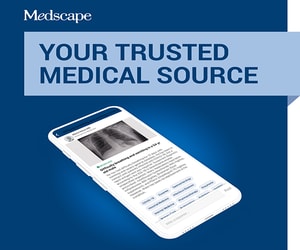Oct. 20, 2005 -- The U.S. Food and Drug Administration (FDA) has approved a hepatitis A vaccine for use in children aged one year and older; iron sucrose injection for use in peritoneal dialysis-dependent patients with chronic kidney disease who are receiving erythropoietin therapy; and a once-daily fexofenadine HCl regimen for the treatment of chronic idiopathic urticaria.
Hepatitis A Vaccine (Havrix) for Use in Infants Aged 1 Year and Older
On Oct. 18, the FDA approved an expanded indication for a hepatitis A vaccine (Havrix, made by GlaxoSmithKline), allowing its use in children aged 12 months and older. The vaccine was previously approved for use in children and adolescents aged 2 to 18 years.
The approval was based on data from a prospective, open, comparative, multicenter clinical trial in more than 1,000 healthy children, showing the vaccine's comparable safety and immunogenicity when administered in two doses (720 El.U/0.5 mL on a newborn and six-month schedule) starting at age 11 to 13 months, 15 to 18 months, and two years. All children demonstrated a positive immune response to hepatitis A; local and systemic adverse effects were comparable across all age groups.
The study also showed that the hepatitis A vaccine retained its efficacy when administered concomitantly with Haemophilus b tetanus toxoid conjugate vaccine (Hib conjugate vaccine).
According to a company news release, the expanded indication is intended to allow healthcare providers to vaccinate younger children against hepatitis A at an age that may further help reduce the incidence of disease because young children often serve as carriers.
Later this month, the Advisory Committee on Immunization Practices will meet to determine whether hepatitis A vaccination requirements should be expanded to all children.
Iron Sucrose Injection (Venofer) for Use in Peritoneal Dialysis Patients
On Oct. 17, the FDA approved an expanded indication for iron sucrose injection (Venofer, made by American Regent, Inc., under license from Vifor International Inc.), allowing its use for the treatment of iron-deficiency anemia in peritoneal dialysis-dependent patients with chronic kidney disease (CKD) who are receiving erythropoietin therapy.
The product was previously approved for this indication in hemodialysis-dependent CKD patients receiving an erythropoietin, and predialysis CKD patients receiving or not receiving erythropoietin.
In peritoneal patients, iron sucrose is infused intravenously in three divided doses for a total dose of 1000 mg during a 28-day period: two infusions of 300 mg for 1.5 hours 14 days apart, followed by one 400-mg infusion for 2.5 hours 14 days later.
New Fexofenadine (Allegra) Dosing Regimen for Idiopathic Urticaria
On Oct. 13, the FDA approved once-daily fexofenadine HCl (Allegra 180-mg tablets, made by Sanofi-Aventis Group), allowing its use in the treatment of chronic idiopathic urticaria in adult and pediatric patients aged 12 years and older.
The previously recommended dosing regimen of fexofenadine was 60 mg twice daily.
Fexofenadine is indicated for use in adults and children aged six years and older to relieve symptoms associated with seasonal allergic rhinitis, and to treat uncomplicated skin manifestations of chronic idiopathic urticaria. Approval of the new regimen allows use of the 180-mg dose for both indications in patients aged 12 years and older.
Reviewed by Gary D. Vogin, MD
Medscape Medical News © 2005В
Medscape
Cite this: Yael Waknine.В FDA Approvals: Havrix, Venofer, AllegraВ -В MedscapeВ -В OctВ 20,В 2005.


Comments